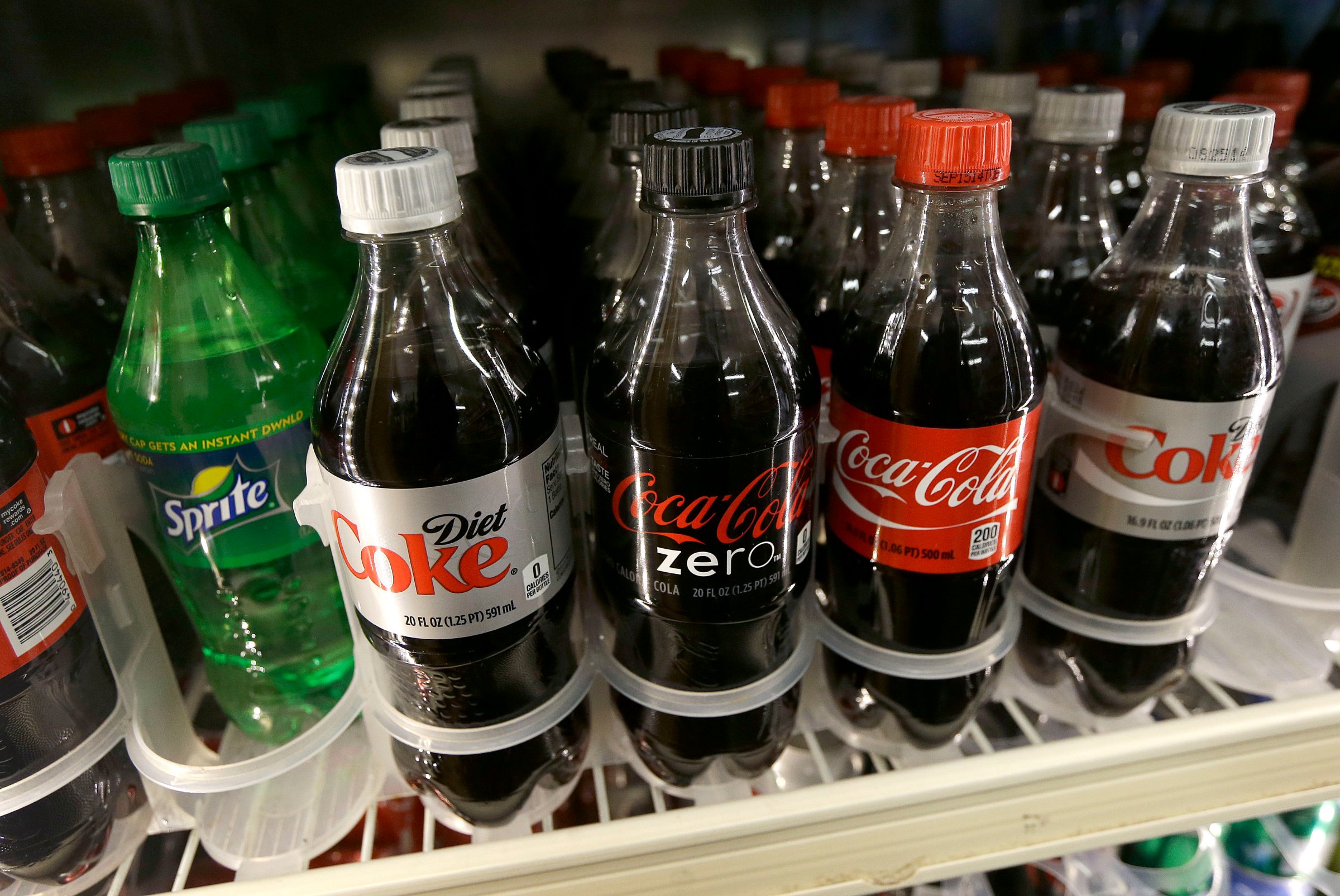
If not here, where? On Tuesday, voters in the progressive California cities of Berkeley and San Francisco will decide on whether to tax sugar-heavy beverages like soda. Similar measures have failed in dozens of other cities, including reliably blue New York, and the association representing beverage giants like Coca-Cola and PepsiCo has donated more than $10 million to defeat the Bay Area levies. Players on both sides of the fight say that if taxing soda fails to win enough support in these liberal enclaves, it’s hard to imagine where else in the nation it could succeed.
“It’s important because it’s a first step,” says Berkeley City Councilman Laurie Capitelli, one of the unanimous votes in favor of putting the tax on the Nov. 4 ballot. “There’s a serious public health issue that needs to be addressed.”
Advocates for the taxes tout research linking sugar consumption to conditions like obesity and Type 2 diabetes. Some studies have shown that raising the price of sugary beverages causes sales to go down. In a 2013 study, Harvard researchers found that increasing the price of a 20 oz. soda by 20 cents led to a 16% sales drop.
Food policy writer Michael Pollan, a professor at the University of California—Berkeley who has endorsed the city’s measure, wants Berkeley to be a sort of pilot program. “I’m eager to see this experiment perform. We haven’t had a chance to see if taxing soda will reduce consumption because the industry has fought it so ferociously,” he says. “We need to try everything … I think there are still a lot of people out there who haven’t gotten the message that soda is bad for you.”
In Berkeley, Measure D would impose a one-cent-per-oz. tax on distributors of sugary drinks. If that tax was passed onto consumers, as the opposition argues it almost certainly will be, a $1.99 bottle of Coke at a Walgreen’s in Berkeley would cost $2.19. In San Francisco, Proposition E could institute a two-cent-per-oz. tax. Though the shorthand for the measures highlights soda, the taxes would apply to all high-calorie, sugary drinks. In San Francisco’s proposal, that means any beverage that contains added sugar and 25 or more calories per 12 oz.
Lower-income consumers, who both drink more soda and are more likely to be obese, have been at the center of the debate. San Francisco Supervisor Scott Wiener, who supports the tax, says that education about the potential dangers of excessive sugar consumption has not been enough of a deterrent. He and other advocates hope that the levy will help push consumers to choose healthier beverages, reducing soda consumption and, hopefully, improving people’s health.
Critics of the measures see the taxes as another form of government intrusion into personal behavior. “When the government decides they want to tell you what you should and shouldn’t be eating, where does it end?” asks Roger Salazar, the spokesman for campaigns opposing both soda taxes. “Do they decide at some point that eating too many burgers is bad for you, so all burgers are going to be taxed?”
The campaign against the San Francisco tax has raised $9.1 million, while the Berkeley equivalent has raised $2.4 million. In both cases, almost all the money has come from the American Beverage Association’s political action committee.
Since no U.S. municipality has adopted a soda tax, it is not known how it would affect beverage sales. Ads opposing the taxes have made the case that the measures would lead to a drop in revenue for small businesses like convenience stores. Wiener calls that fear spurious. “If people drink less sugary drinks, they’re not going to stop drinking or buying drinks,” he says. “They’re just going to buy different drinks.” As evidence, he points to Mexico, where sales of high-calorie beverages dropped after a similar tax was instituted in January, while sales of low-calorie beverages and consumption of water increased.
The tax may stand a better chance of passing in Berkeley, partly because it will require only a majority of votes. Even the beverage association’s Salazar admits the political reality of the college town with a proud activist history. “Berkeley is an eclectic city. It’s different,” he says, “unlike any other city in California.”
The odds are tougher in San Francisco. Because the measure earmarks proceeds for health and nutrition programs, rather than going into the city’s general fund, two-thirds of voters must back the measure for it to pass. Wiener says they made the decision to set that higher bar after polling showed stronger support for a soda tax with revenue dedicated to the same cause behind the levy: promoting better habits.
To some tax supporters, even the debate around the issue is a win. Soda consumption has been slightly declining since 2005, and Pollan credits ballot measures like this one for creating awareness and making people think twice before they start swilling. “If [the tax proposal] fails, it could drive a stake in the heart of these efforts, at least for a while,” he says. “But even when these fights lose, they succeed in pointing the finger at soda as a problem.”
More Must-Reads from TIME
- Cybersecurity Experts Are Sounding the Alarm on DOGE
- Meet the 2025 Women of the Year
- The Harsh Truth About Disability Inclusion
- Why Do More Young Adults Have Cancer?
- Colman Domingo Leads With Radical Love
- How to Get Better at Doing Things Alone
- Michelle Zauner Stares Down the Darkness
Contact us at letters@time.com